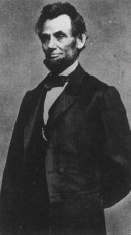ACKNOWLEDGMENTS
As is always the case with a first book, there are a L great number of people to thank for their help, assistance, and encouragement during the research and writing of this work. In the first place, I would like to thank Professor F. L. Loewenheim, whose remark over dinner one evening led me to embark on this project and who gave invaluable advice and help at every stage of research and writing; I am deeply in his debt both for his kindness and for sharing some of his erudition with me. I must also thank Professor Gale Stokes, who showed enough faith to unleash me on this project; he, too, gave invaluable encouragement and support.
There are a great many people who read and commented on early versions of this work. Most notable among them are Professor Barbara Jelavich and Professor Robert F. Byrnes, both of whom read and suggested many alterations to the earlier, very rough drafts. Professor Charles Jelavich and Professor Yuri Bregel also read a portion of the manuscript and imparted many useful pieces of advice. My friends Hal Kosiba, James Felak, Sara Birtles, and Parris Hawkins also assisted me in many more ways than they know. To all of these people I am very grateful, and, though I owe to each of them many useful insights, all errors of omission or commission are of course entirely my own.
Most of all I should like to thank my families, to whom this book is dedicated. Both my own parents gave me unflinching support, even during the most difficult periods when my obsession must have been very tiring. I am particularly grateful to my mother, who not only typed two early drafts but also showed an almost inexplicable interest in the work itself. My in-laws also helped in countless ways, and I am especially grateful to James McMillan, my father-in-law, for the opportunity to draw on his deep knowledge of wartime Britain, which he shared with me in many memorable conversations.
Finally, I would like to thank my wife, Doreen, who endured a great deal of difficulty and uncertainty on my behalf. Without her support, I could not have achieved what little I have done. My daughter Emily, too, though fortunately for her still too young to be pressed into copyediting, has enriched both our lives and supported us without even knowing.
BETWEEN CHURCHILL AND STALIN
INTRODUCTION
Since the end of World War II, scholars have combed the history of wartime relations between the partners of the Grand Alliance, searching for the origins of the cold war. Historians seeking the causes of this conflict have returned again and again to the inter-Allied disputes, especially over Poland, that led directly to the breakup of the wartime alliance between Great Britain, the United States, and the Soviet Union.
But looking backward in history to find the causes of later conflicts can distort the relative importance of events and issues. All the attention lavished on the Polish imbroglio and the other diplomatic quarrels regarding Eastern Europe and the Balkans has partially obscured the fact that many of the issues over which the Allies clashed in the final years of the warSoviet territorial demands, the right of smaller nations to self-determination, and the balance of power in Europe, for examplehad already arisen between 1940 and 1942 because of Stalins earlier territorial claims, to the Baltic States, Bessarabia, and Bukovina. Most histories of the Cold War only treat this vital, formative period of the Grand Alliance as a prologue to the events of 1943 and after.
Stalins claim to the Baltic States may merely have been a pawn, or an opening gambit, heralding much wider demands, but for that reason alone the history of this dispute is worth examining. The diplomatic, political, and moral issues that eventually sundered Britains wartime alliance with the USSR were all present and appeared in miniature during the Anglo-Soviet negotiations over Stalins first wartime territorial claims, between 1940 and the spring of 1942. A study of this period sheds light on the reasons why the alliance between the USSR and the West did not, and could not, outlast the war.
This book examines Anglo-Soviet relations during two critical years, 1940-42, from the early days of the Nazi-Soviet Pact to the signing of the Anglo-Soviet Treaty. During these years the two nations were transformed from virtual enemies into allies, albeit not terribly close ones. The transformation was not smooth, and this is a history both of Stalinist diplomacy and of British attempts to develop a viable Soviet policy. It is, above all else, a story of how British leaders chased a diplomatic mirage, trying to gain Stalins confidence by acceding to his early territorial demands, only to discover that by doing so they had undermined their ability to resist Soviet expansion later in the war.
Stalins first territorial demands had a lengthy gestation; they sprang from the years immediately following World War I and from the humiliating territorial losses suffered by the Soviets at that time. The victorious Allies excluded the Soviets from the Versailles Peace Conference and recognized the secession from the new Bolshevik state of many of the former Russian Empires western dominions: Poland, the Baltic States, and other provinces, such as Bessarabia, which was seized by the Romanians, and parts of Belorussia, which the Poles acquired through the Treaty of Riga in 1921, at the end of the brief Russo-Polish War. Finland also established its independence. Most of the peoples in question took advantage of the Soviet states temporary weakness to rid themselves of Soviet control, and the Western Allies, hostile as they were to Bolshevism, were happy to sanction Soviet losses.
As one historian notes, exclusion of the Soviets from the peace conference backfired, since it allowed the Soviet statesmen to denounce freely what was indeed a very bad settlement.
The USSRs relations with Britain were substantially colder than its ties with Germany. Stalin told the Fourteenth Congress of the Communist Party of the Soviet Union in December 1925 that an Anglo-American union dominated the world, and that the Soviet Union, which stood at the head of the dissatisfied countries, should work for rapprochement with the countries defeated in the imperialist war to destroy this hegemony.
Hitlers accession to power started a diplomatic revolution in Europe. Detesting Bolshevism, the Fhrer cut short the German-Soviet partnership despite Moscows determined efforts during 1933 and early 1934 to prolong it. The USSR turned in an unaccustomed directionto the Western democraciesin an ultimately vain search for collective security and allies. In September 1934, the USSR joined the League of Nations, having previously denounced that body as a tool of the satisfied powers. And in May 1935, the USSR signed with France a mutual assistance pact that fell far short of a full military alliance. In spite of these moves, however, the West and Moscow remained suspicious of each other. The Soviets found themselves diplomatically isolated, spurned by the Nazis yet not fully accepted by the Western democracies.




